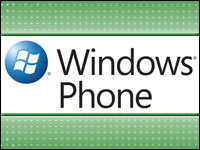
While globalization of the world’s economy may be a done deal, global business still largely happens in English — or at least in languages that use the same characters as the English language, such as Spanish and French. This week, however, the organization that controls the naming of Internet domains took a historic step and entered the first “internationalized domain names” (IDNs) into the Internet’s master directory.
Egypt, Saudi Arabia, and the United Arab Emirates are the first three countries to use Arabic characters in the last portion of their Internet domain names. That’s the portion of the name to the right of the dot, or, in Arabic, which is read right to left, to the left of the dot.
It’s a “seismic shift” for the global Internet, said Rod Beckstrom, president and CEO of the Internet Corporation for Assigned Names and Numbers (ICANN). The ongoing transition to languages that use alphabets other than Latin-based ones will make the Internet “more accessible to millions around the globe,” he said.
Making the Switch
Before now, Internet users have had to switch to Latin characters when entering the last portion of a domain name. That can be tricky for those in countries where English is not widely or perhaps not at all familiar, Tina Dam, senior director of ICANN’s IDN program, told the E-Commerce Times.
While the three countries using Arabic characters are first through the newly established process, eight more are in the chute, said Dam. Russia has established a country domain that is ready to deploy. China has completed part of the application process. The country now is at the level of the procedure where it has made application for “delegation into the root zone,” she explained.
For those watching the increasing internationalization of e-commerce, the implications are substantial. However, commercial companies are not the ICANN’s primary concern in making the switch.
“We see the big benefit for local communications,” Dam explained. If you have a website and only have Arabic content, it doesn’t make sense that the address is not Arabic.”
Whither the Dot-Com?
Rather than serving the commercial community, ICANN’s primary role is to provide support to the “Internet community” of specific countries and territories, according to the organization.
Thus, part of the process for applying for non-Latin high-level domains is that “applicants have to demonstrate that their government is supportive,” explained Dam.
While all applicants for non-Latin country domains have been government-affiliated, in the current case of Arabic country domains, at least one applicant was a nonprofit agency, she added. These tend to be Internet service providers, rather than commercial entities.
However, companies based in the U.S. may certainly want to apply for domains in the non-Latin naming standard, Dam acknowledged.
“If you have a target market both within the U.S. and also in a territory where Latin characters are not used, this could be useful,” she said.
As the languages proliferate, businesses may indeed choose to purchase domains in each of the non-Latin languages available, she noted.
However, one has to consider the content of a company’s website, and its target market, to understand if that move might be useful, said Dam. Those companies who wish to market exclusively in non-Latin languages might want a non-Latin domain name. Those which have pages and pages of Web content written in English or other Latin-character-based languages probably already have visibility with a .com domain extension.
Striking the Right Balance
The balance between the public good being promoted by localized content and the wider applications — commercial, political, and otherwise — of Internet content is a difficult one to strike, but important in terms of eliminating barriers of time and geographic space, Claire Simmers, chair and professor of management and international business at Saint Joseph’s University, told the E-Commerce Times.
“It is similar, I suppose, to the Catholic Church allowing the Mass celebration to be in the native language rather than Latin,” Simmers said. “There were some who argued that this adjustment to localism was not a positive step but was fostering localism at the expense of centralism. The possibility is more silos rather than openness.”
However, the upside possibilities include the fact that increased Internet usage is a positive social good, she stressed.
“A Google search elicits many websites, and not just those in a specific language,” noted Simmers. Thus, ICANN is being true to its mission to “regulate while encouraging openness.”























































Social Media
See all Social Media